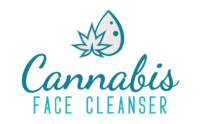Walk into either beauty giant and you’ll find “cannabis” cues scattered across shelves—CBD serums, hemp body lotions, and green-leaf branding everywhere. But when you zoom in on true CBD skincare (products formulated with cannabidiol) versus hemp seed oil (nutritive but non-cannabinoid), Sephora and Ulta take noticeably different lanes.
Sephora has spent years cultivating a defined CBD assortment with clear guardrails. It launched category pioneers like Lord Jones and Saint Jane, then formalized “CBD Standards” that speak to sourcing, potency, and testing to reassure shoppers who expect Sephora’s vetting to extend into cannabinoids. Those standards—announced to clarify full- and broad-spectrum quality expectations—signal a retailer willing to curate rather than merely list whatever’s trending.
That curation shows up on the site: Sephora still maintains a dedicated “CBD Skincare” guide and continues to merchandise Saint Jane broadly across skincare and luxury beauty, including its flagship Luxury CBD Beauty Serum alongside non-CBD SKUs under the same brand umbrella. For a consumer who specifically wants CBD in facial care, this storefront makes discovery simple and credible.
Ulta, by contrast, leans hard into hemp seed oil—especially in body care—where value pricing and fragrance variety win. Its deep relationship with Hempz (a hemp seed oil line) results in dozens of exclusives and seasonal drops, from shimmer mists to vitamin C serums for the body. If your basket is lotion-heavy and budget-minded, Ulta’s hemp assortment is a playground. Historically, Ulta has dabbled in CBD (Cannuka’s 2019 entrance was a moment), but the shelf today is far more reliably stocked with hemp seed oil formulas than facial CBD treatments.
Price and positioning matter, too. Sephora’s CBD selection tends to sit in the prestige tier, reflecting brand pedigrees and elevated packaging—think targeted serums and face oils for calming and barrier support. That aligns with Sephora’s broader strategy of highly curated, experiential beauty merchandising. Ulta’s hemp lineup, meanwhile, aligns with its mass-to-prestige spectrum: big bottles, fun scents, and frequent promos—great for routine replenishment and gifting. (Ulta’s filings emphasize ongoing brand and product expansion across price points, which fits this pattern.)
Effect-wise, remember the ingredient difference. Hemp seed oil is beloved for essential fatty acids that support the skin barrier and soften dryness—but it contains no cannabinoids. CBD, on the other hand, is a cannabinoid used in cosmetics for soothing and balancing claims (within regulatory limits). Both have a place in a routine; they’re just not interchangeable. Retailers muddy those waters less when they label clearly—another area where Sephora’s dedicated CBD hub helps shoppers self-educate before they add to cart.
So who “wins”? If your goal is true CBD skincare—especially facial serums and treatments—Sephora takes the edge thanks to its dedicated CBD category, articulated standards, and ongoing support of category builders like Saint Jane. The experience makes it easier to find cannabinoid-forward formulas with transparency around what’s inside.
If you’re shopping hemp seed oil body care for everyday moisture, Ulta is hard to beat. The breadth, frequent exclusives, and promo cadence around Hempz and similar lines make it the better stop for big, fragrant, feel-good body buys that won’t spike the receipt.
Bottom line: pick Sephora for cannabinoid-centric skincare and Ulta for value-rich hemp body care. Savvy beauty fans will mix both—prestige CBD serum for the face from Sephora, jumbo hemp lotion for the body from Ulta—and get the best of cannabis-inspired care without the confusion.
Blog read: How to Read Labels on Cannabis Skincare Products Before You Buy
